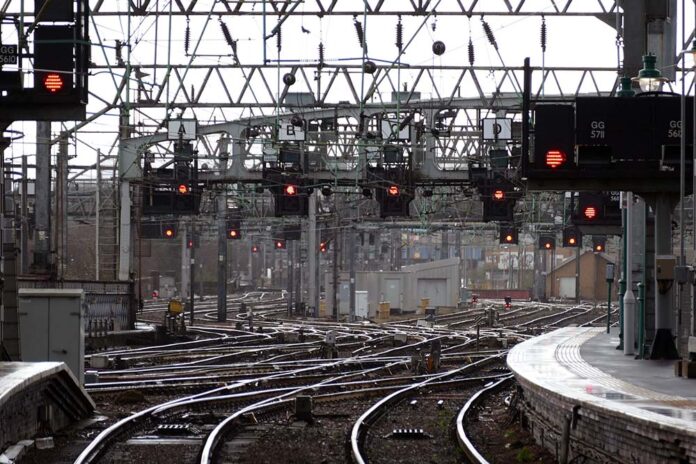Recommendations to open up the railway signalling market have been published by the Office of Rail and Road (ORR) – with the government department saying it believes there is not enough competition.
The potential measures, it says, would allow Network Rail to “boost competition between suppliers on cost, quality and innovation.” It also says the recommendations would promote efficiency and performance on the network.
The recommendations come as the market for signalling in Great Britain reaches £800-900million a year. The ORR expects this market to expand “significantly” thanks to digitisation.
“For change on this scale to be delivered affordably, Network Rail as the main buyer of signalling systems needs to transform its approach to procuring and delivering signalling projects,” the ORR said in a statement.
The ORR believes the market is “not competitive enough”. It says there are too few suppliers, costs are too high and adds Network Rail does not have the procurement practices in place to benefit from its buying power. From this perspective the ORR recommends:
- A new approach to procurement aimed at rewarding pro-competitive behaviour, widening the pool of suppliers, and reducing Network Rail’s dependency on incumbent suppliers.
- Ensuring Network Rail’s procurement processes are run on genuinely competitive terms and do not unduly favour existing suppliers or penalise ‘first movers’ in new technology.
- Providing suppliers with greater certainty in the volumes of work awarded to them and reducing the risk when developing new technologies.
Network Rail has been given three months to form a strategy and plan saying how it intends to implement the findings and recommendations.
John Larkinson, Chief Executive, ORR said: “There are more than 40,000 signals on the mainline network, with 65% of these needing to be renewed within the next 15 years – and essentially there are only two main players in the GB market for major signalling projects, namely Siemens and Alstom, who account for over 90% of Network Rail’s major signalling spend.
“The shift from conventional to digital signalling systems has the potential to revolutionise the way the railway operates, delivering transformative improvements to increase capacity, lower unit costs, and reduce disruption.
“Our recommendations set out how Network Rail can reduce reliance on the dominant suppliers, and make the market more attractive to potential new suppliers by increasing suppliers’ confidence in the market and reducing costs.”
In response, David Clarke, technical director at the Railway Industry Association, said there was already a potential plan from Network Rail ready to go, it just needed funding: “It is clear the UK needs a funded plan for digital signalling on UK rail, which can revolutionise the way our railway runs, by increasing capacity, reducing cost and improving reliability. Network Rail’s Long Term Deployment Plan sets out a good strategy for the roll out of digital signalling, but it is yet to be funded, leaving rail suppliers uncertain as to whether the plan will go ahead.
“With some 65% of signalling equipment needing replacing in the coming 15 years, this issue is becoming increasingly urgent. So we urge Government to work with industry to get the programme underway, and to ensure our railway is able to transition to new digital technology, providing benefits for passengers, freight users and taxpayers, as well as communities across the UK.”







































 0113 2082620
0113 2082620 info@railbusinessdaily.com
info@railbusinessdaily.com 15 Mariner Court, Wakefield WF4 3FL
15 Mariner Court, Wakefield WF4 3FL

